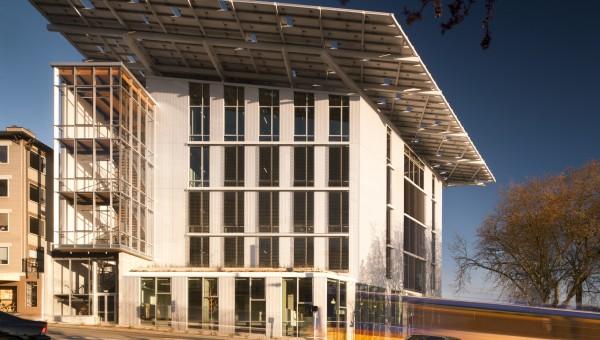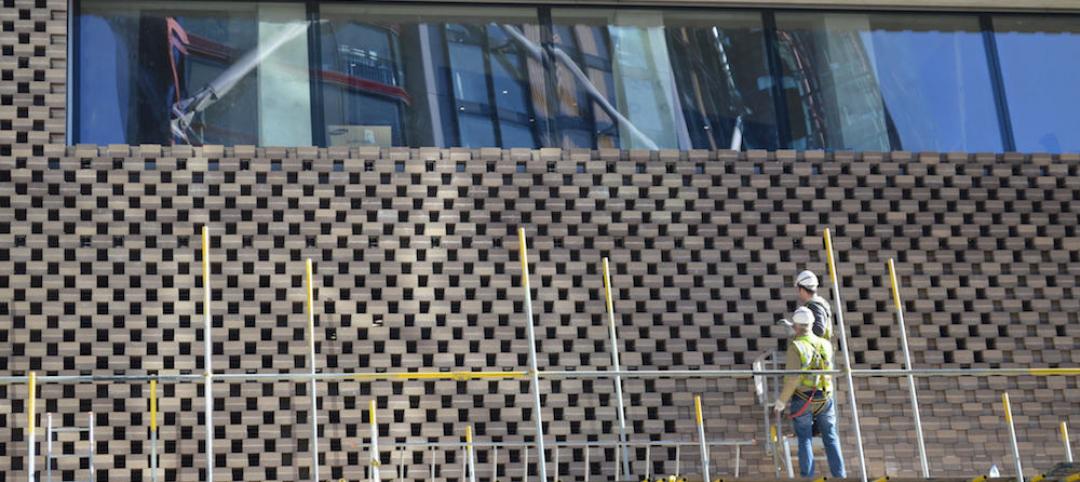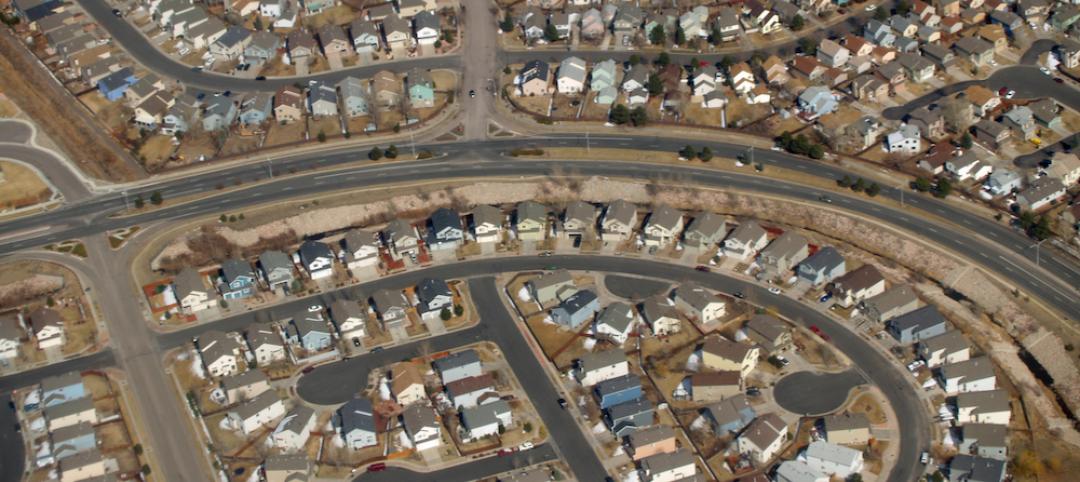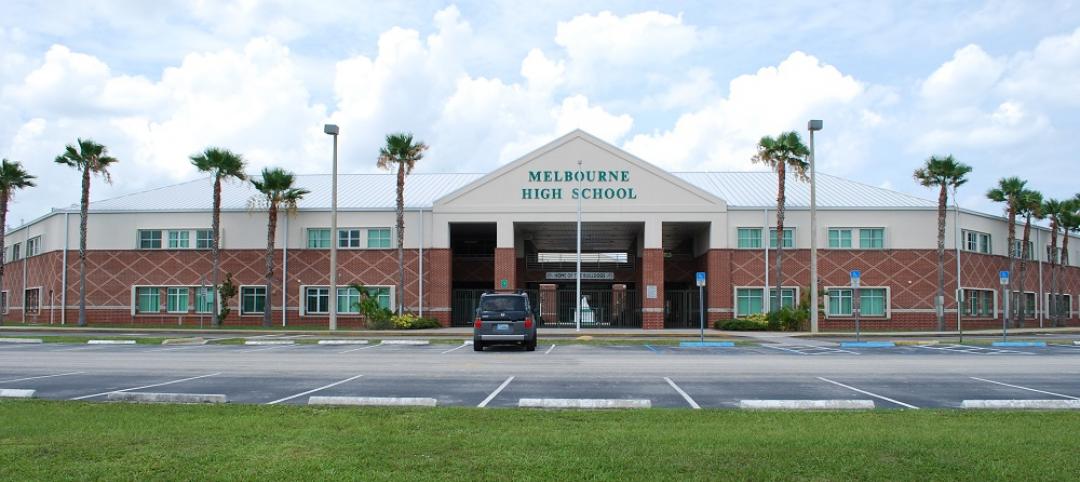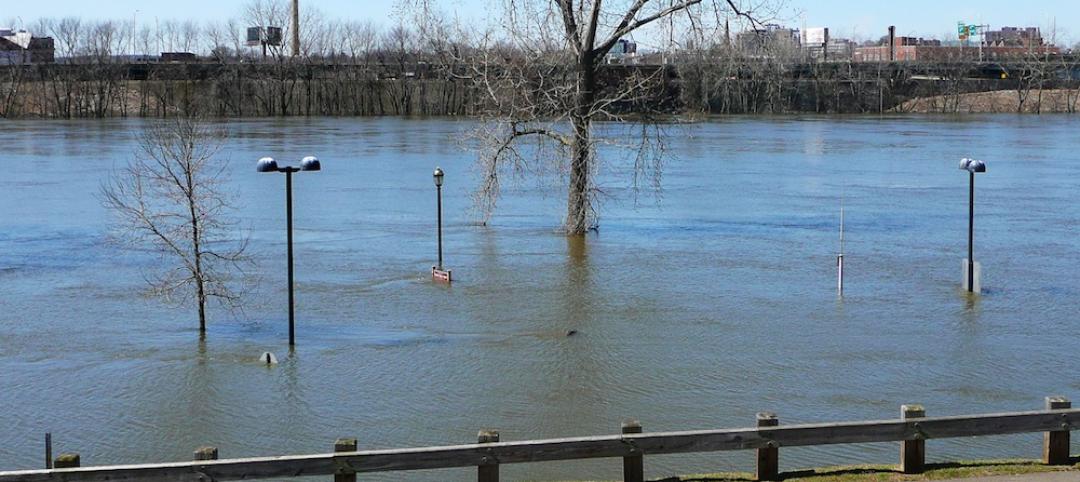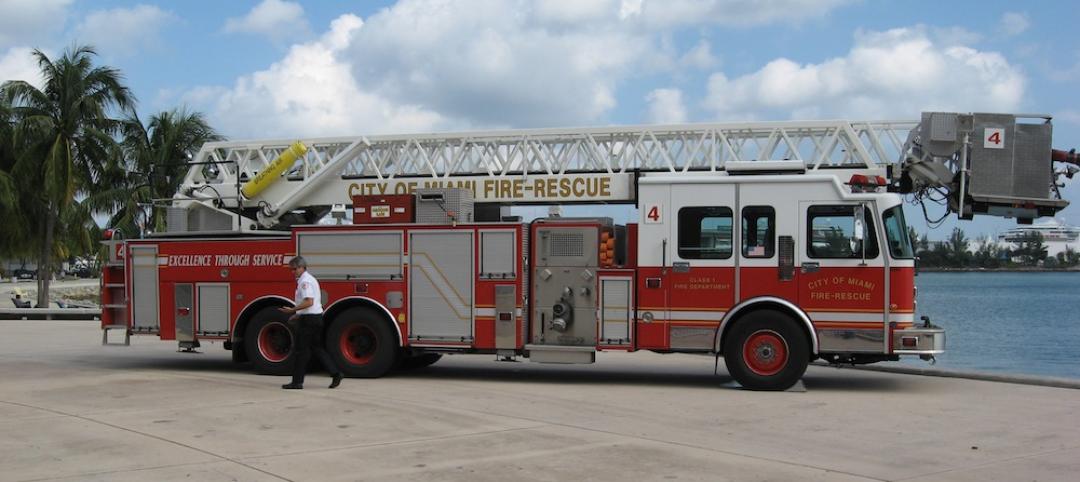The Bullitt Center in Seattle, which some say is the world's "most efficient" office building is not only influencing how other structures are built, it is contributing to revisions of codes and public policy.
The building’s design was made possible by Seattle’s Deep Green Pilot Program that allows builders to deviate from standard codes to build more sustainably. For example, the building was allowed to add two to three feet to the height of each floor to allow more daylighting. Neighbors objected to the additional 10 feet in overall building height, but the program permitted the non-conforming design.
Some of the building’s code deviations have been incorporated into the city code. For instance, the city council and the mayor had to approve changes to the building code to allow permits for “sustainability features.” This move allows the building’s solar canopy to extend all the way to the property line.
Bullitt Foundation, the environmental group that owns the building, recently signed a first-in-the-nation agreement with the local utility that will allow the foundation to sell Seattle City Light the energy it is saving or “negawatts.” The arrangement, known as MEETS (metered energy efficiency transaction structure) could be a pioneer in drawing investment funds to energy-efficiency projects.
Bullitt is also seeking final approvals from the county and state to turn the building into its own water district. That designation would allow tenants to drink rainwater collected on site and treated in the building’s basement.
(http://grist.org/business-technology/how-one-building-is-changing-the-world/)
Related Stories
Codes and Standards | May 9, 2016
Safety Stand-Down yields proposals to boost construction safety
One example: Gilbane encourages safety harnesses for all working above 6 feet.
Codes and Standards | May 9, 2016
EcoDistricts unveils sustainable neighborhood framework
Focus is on equity, resilience, and climate protection.
School Construction | May 3, 2016
Florida clamps down on school construction spending
Critics fear rules will hamper ability to build schools with desired features.
Resiliency | May 2, 2016
Connecticut to develop new code standards for resiliency
Expected more frequent severe weather events due to climate change prompts review.
Contractors | Apr 29, 2016
OSHA issues advisory to protect workers from Zika virus
Construction industry workers considered at high risk.
Codes and Standards | Apr 28, 2016
New research finds 30 measures to significantly cut energy use
ASHRAE’s prescription cuts across all building types and climates.
Codes and Standards | Apr 27, 2016
Florida gives developers more time to install first responder radio signal systems
Expensive upgrades can be postponed for several years.
Codes and Standards | Apr 25, 2016
San Francisco becomes first big U.S. city to require solar panels on new buildings
Pertains to commercial and residential buildings shorter than 10 stories.
Codes and Standards | Apr 25, 2016
GSA adopts SITES land development and management rating system
Federal agency will use for properties with and without buildings.
Wood | Apr 22, 2016
Revised 2015 Manual for Engineered Wood Construction available
American Wood Council Document offers design information for structural applications.


